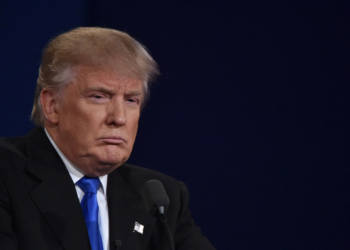With the way Nigeria and Ghana relate closely to each other, it is hard to believe that there are 2 countries (Benin Republic and Togo) separating them.

Maybe it is understandable. Nigeria has the largest economy in the region, but is surrounded by francophone African countries. The nearest Anglophone nation to her is Ghana. That could explain the close relationship between both nations – language and a shared history under the same colonial masters.
You might be wondering, “This is not a geography class!” True, it is not. Well, I have been asking tech entrepreneurs in Nigeria, “If you were to expand your business geographically, what country would you choose?” The usual suspects – Ghana, and Kenya (especially Ghana), top the list. So, I am trying to find out, why Ghana?
In a bid to have a balanced post, I will review the arguments for and against the Ghana expansion drive and explore other available options.
The Pros
Language Barrier – I will be the first to acknowledge that it is very difficult to do business in a country with a significantly different culture, let alone language. Even in Nigeria, the concept of convenience is different between Lagos and Abuja. So, imagine setting up a business in a country whose lingua franca is one you do not understand. It means you have to build everything from scratch! Your website, team, call centre agents, marketing materials etc. This might not make any business sense (at least not at the initial stage), except of course, you have a ton of cash to burn.
Similar Economy, Consumer Behavior and Political Climate – Another major reason most Nigerian entrepreneurs prefer expanding to Ghana, is the perceived similarities between both economies. It is said that both countries have similar economic drivers, and similar consumer behaviours. In some quarters, it is also believed that if you want to know what will happen in Ghana, look at what is happening in Nigeria. If you doubt me, investigate the path of the current Ghanaian president, Nana Akufo-Addo, to power. You will see similarities to that of Nigeria’s current president; both defeated the respective incumbents in their third presidential elections, at the age of 73. Some people have also said that the regulatory environment is also similar. If there is a major reform in Nigeria, you should expect similar reforms in Ghana or vise versa. If you doubt, please check the banking reforms of both countries, the pension reforms etc.
Cost (Logistics) – One of the major things to keep an eye on while expanding, is cost. It is relatively easy to jump on a bus and arrive in Accra on the same day, or book an airline ticket and arrive within an hour. The cost of expanding to Ghana from Lagos might be similar to the cost of setting up an office in Abuja from Lagos.
The Cons
How large is the Ghanaian economy? – This is where I have the problem. How large is that economy and what is the size of the opportunity you are trying to capture in that market? If I think the Nigerian economy is not as large as it is being portrayed in the media and by other government and international propaganda machinery, then I have cause to believe that the Ghanaian economy is much smaller than we all think. Going by GDP figures, it might surprise you to know that Ghana is ranked 13th largest economy in Africa. Behind the likes of Democratic Republic of Congo at 12th, Tunisia, Tanzania, Kenya, Ethiopia, Sudan, Angola Morocco, Algeria, South Africa, Egypt and Nigeria in 11th to 1st place respectively.
The Uber Reality Check

Since its launch in September in Sub-Saharan Africa, Uber has signed up 1.8 million active riders and 29,000 active driver-partners with South Africa leading the pack with 969 000 active riders and 12,000 active drivers while Nigeria comes in second with 267 000 active riders and 7 000 active drivers.
Sub-Saharan Africa doesn’t include North African countries like Algeria, Egypt, Morocco and Tunisia. Ghana has 140,000 active riders and 3,000 active drivers. Kenya has 363,000 active riders and 5,000 active drivers while Uganda has 48,000 active riders and 1,000 active drivers compared to Tanzania’s 53,000 active riders and 1,000 active drivers.
We all know about the below par performance of Uber in Nigeria, Lagos especially. Despite that, the Ghanaian (Accra) business is a fraction of that. This further underscores the actual sizes of both the Nigerian and Ghanaian economies, or at the minimum, their reception and openness to the technology age.
Reviewing Available Options
Really, It is not about the economy, but just about the Viable Cities– Like I have mentioned in previous blog posts, most technology businesses are only viable with urbanization, hence the concentration of technology businesses in Lagos and Abuja. I believe the situation will be the same for Ghana. So, I tried to find out viable cities in Ghana, and discovered only 2 – Accra and Kumasi. Both cities have over 2 million inhabitants- each just 2 million! Other cities have between 200k – 700k inhabitants. That is really small! Chai, so all the strategy to expand is targeted at an additional 4 million people living in Accra and Kumasi. I am not sure that is a good move.
Why not Ibadan or other tier-2 cities in Nigeria? Rather than feed my ego by claiming international expansion, it just might be better to lock down the Nigerian market. This is where the deal is, I believe. Targeting tier-2 cities in Nigeria could prove more profitable than targeting Accra and Kumasi. Tier-2 cities like Ibadan, Enugu, Uyo, Calabar, Benin, and Kaduna might be more viable than the 2 Ghanaian cities put together. Most of these cities have more than 2 million residents with decent infrastructure to support technology scaling. I will recommend that entrepreneurs look to double down on the Nigerian economy.
Why not also Think London and Cape Town – I have friend who is the CEO of an apartment sharing startup—a business which I believe, is more suited to the developed markets. There are a number of products that are in this category trying to slug it out in an emerging or frontier market while developed markets are begging for such products. So rather than think only Ghana for expansion purposes, why not think more developed African economies (cities) including Cape Town, Casablanca, Alexandria, etc, and other European ones (maybe eastern European nations) like Belarus, Bulgaria, Czech Republic, Hungary, Poland, Romania, Ukraine, etc.
Summary of the Whole Matter
- Pan-African expansion is great for your business, especially from the currency and stability stand point.
- Nigeria is not that big a market and the Ghanaian market is much smaller than we all thought!
- Be careful in choosing your final expansion target market; do not follow the band wagon.
- Do not be in a hurry to expand to Ghana, as it is not that large a market.
- Targeting Tier-2 cities in Nigeria might be more viable compared to Ghana.
- You might want to dare to expand to more developed market starting in Africa, but Europe has not closed its doors.





















